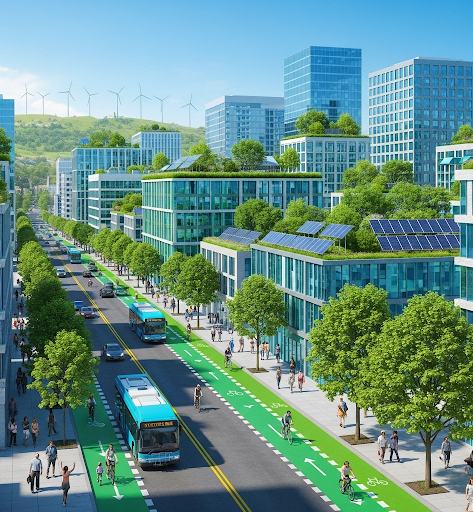How Engagement Boost Plans Mirror Cities Embracing Eco-Friendly Urban Development?
Social media marketers often turn to engagement boost plans to enhance brand visibility and increase audience interaction across digital platforms. These strategies can deliver quick results through targeted campaigns, automated responses, and algorithmic optimization designed to expand reach and improve conversion potential. At the same time, businesses are finding that pairing these short-term initiatives with sustainable growth strategies leads to stronger long-term outcomes. Approaches that focus on authenticity, consistency, and community building help create meaningful connections with audiences and support ongoing success.
Just as sustainable development thrives on careful planning and long-term commitment, lasting engagement on social media grows through strategies that balance immediate gains with enduring relationships. By integrating both short-term engagement tools and long-term, community-focused approaches, organizations can achieve growth that is both measurable and sustainable.
Urban Sustainability Initiative Overview

Cities worldwide are implementing comprehensive environmental programs that transform traditional urban landscapes into sustainable, livable communities. These initiatives encompass energy efficiency improvements, waste reduction strategies, green transportation systems, and renewable energy adoption across municipal operations and residential areas.
Municipal governments are discovering that environmental sustainability initiatives often generate significant economic benefits alongside their ecological advantages. Green building standards reduce long-term operational costs, while renewable energy investments create local employment opportunities and reduce dependence on external energy sources.
Green Transportation Revolution
Public transportation systems are undergoing major transformations as cities prioritize electric buses, bike-sharing programs, and pedestrian-friendly infrastructure development. These changes reduce urban air pollution while improving quality of life for residents through more accessible and affordable mobility options.
Electric vehicle charging networks are expanding rapidly in forward-thinking municipalities, supporting both private vehicle adoption and commercial fleet transitions.
Cities installing comprehensive charging infrastructure position themselves as leaders in sustainable transportation while attracting environmentally conscious businesses and residents.
Infrastructure Modernization Projects
Smart grid technology integration allows cities to optimize energy distribution and reduce waste through real-time monitoring and automated system adjustments. These technological improvements support renewable energy integration while maintaining reliable power delivery to residential and commercial users. Green building certification programs encourage developers to incorporate sustainable design principles into new construction projects, creating structures that minimize environmental impact while maximizing energy efficiency and occupant comfort.
Waste Management Innovation
Zero-waste initiatives are gaining traction in progressive cities through comprehensive recycling programs, composting systems, and circular economy principles that minimize landfill dependency. These programs often involve community education components that engage residents as active participants in sustainability efforts.
Food waste reduction programs target restaurants, grocery stores, and institutional facilities to divert organic materials from landfills while supporting local composting operations or food recovery networks that address community hunger issues.
Economic Benefits and Job Creation
Green economy development creates new employment opportunities in renewable energy installation, environmental consulting, sustainable construction, and urban agriculture sectors. These jobs often provide competitive wages. The best part, this initiative is significantly contributing to community environmental goals and economic diversification efforts.
Tax incentive programs for renewable energy adoption and energy-efficient building improvements help offset initial investment costs. Apart from that, it is pretty useful in generating long-term savings for property owners and reducing overall municipal energy demand and associated infrastructure costs.

 Environmentalists face a daunting challenge in the digital age. The internet is full of information, but not all of it is accurate. For eco-conscious readers, researchers, and advocates, finding credible resources is crucial. Curated platforms act as guiding lights, helping users access authentic articles, government reports, and NGO updates while avoiding misinformation.
Environmentalists face a daunting challenge in the digital age. The internet is full of information, but not all of it is accurate. For eco-conscious readers, researchers, and advocates, finding credible resources is crucial. Curated platforms act as guiding lights, helping users access authentic articles, government reports, and NGO updates while avoiding misinformation.